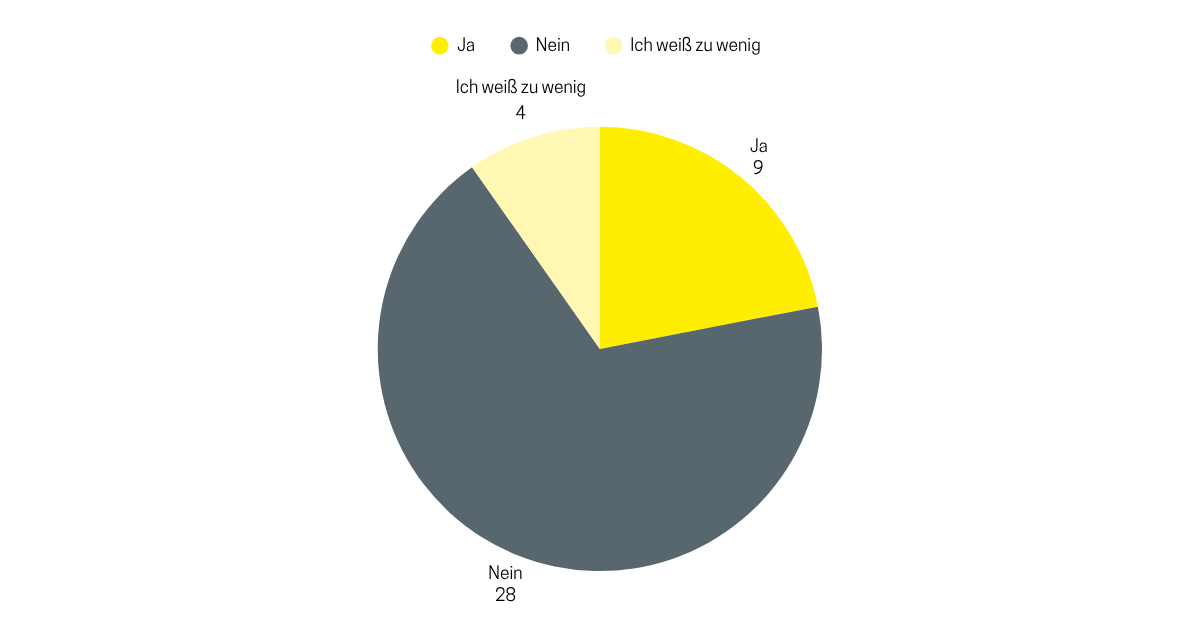Sustainability in the sense of the SDGs has many facets. A healthy economy is one of them. But does it need to grow? And does this contradict ecological and social principles?
Sustainability and economic growth – do we have to choose? The majority of students, lecturers, and business representatives disagreed at the start of the Earth Talks Styria as part of the Green Days 2025.
Fishbowl format – being part of the expert panel

The fishbowl format is ideal for involving both the audience and experts equally in the discussion. In the inner circle (“fishbowl”), 3–4 invited experts begin by discussing key questions. The experts in the inner circle were the ecologist Andreas Exner from the Uni Graz, the Managing Director of the Styrian Business Promotion Agency (SFG) Christoph Ludwig, Green Tech Valley Cluster project manager Markus Simbürger, and lecturer Doris Carini from FH CAMPUS 02.
Two additional chairs remain free. The audience sits in the outer circle and can actively join the discussion for a limited time by taking one of the empty seats. One person moderates the discussion, ensuring balance and keeping to the time frame. In our case, this role was confidently taken on by Elisabeth Obermann from oikos Graz. She gave participants ample time to speak, asked questions at the right moments, and summarised key points.
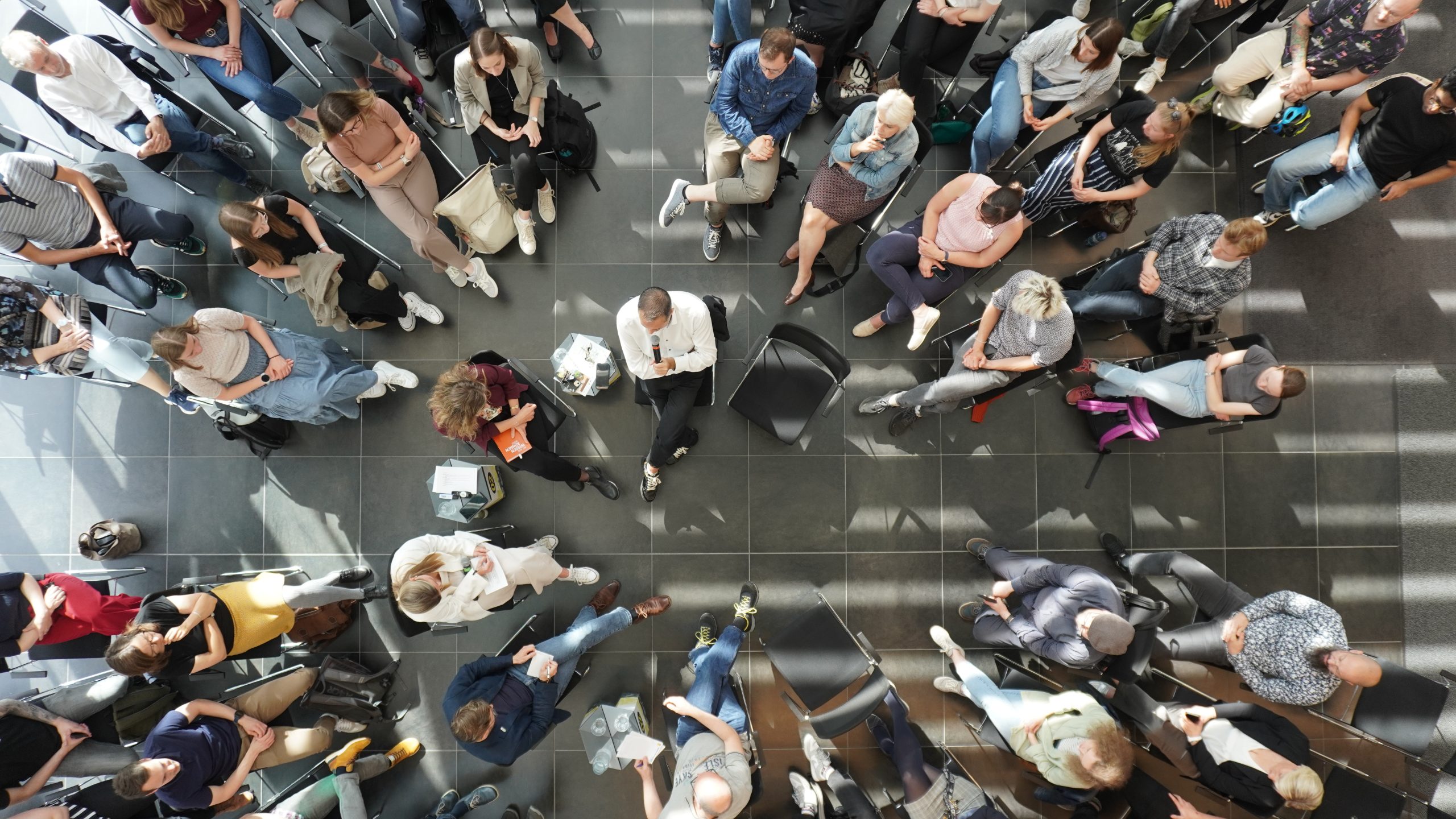
These ideas were exchanged during the fishbowl discussion on 27 May in the auditorium of FH CAMPUS 02 as part of the Earth Talks Styria (organised by the Styrian universities, Sustainability4U).
Procedure of a fishbowl discussion:
1. Impulse phase:
Experts give brief contributions on prepared questions. In our case, viewpoints on sustainability and economic growth were discussed: Christoph Ludwig argued that money is needed to cover costs and that the system is not sustainable without economic growth. Doris Carini brought in the aspect of values and quoted Paul Polman: “Is the world better because your business is in it?” Markus Simböck argued for growth through quality rather than quantity and the circular economy, whereas Andreas Exner emphasised post-sustainability by highlighting the existing failures in the field of sustainability, which require fundamental changes far beyond mere goodwill.
2. Discussion phase:
Opening of the fishbowl – interested listeners may take a seat in the inner circle when available. In our discussion, the following topics were covered:
- Social innovations in the economy and society through social structures such as cooperatives. In a social economy, these could be achieved through a focus on co-determination, needs-based approaches, and solidarity.
- Technical innovations can make certain processes more efficient and environmentally friendly.
- Limited resources could be used more effectively through degrowth models that prioritise quality over quantity, or through the sharing economy, by promoting borrowing, product longevity, and reuse.
- Problems of land consumption, abandoned commercial buildings, and the rapid sealing of surfaces could be mitigated by using existing spaces and focusing on revitalisation (“brownfield investments”) as well as business parks. In addition, the issue of daily increasing land sealing in Austria should be taken seriously.
- Transitioning the energy system to hydrogen must be financially viable. However, with CO2 pricing, it becomes economically challenging to remain competitive. Systems need to be created that make sustainable energy more affordable.
- The advertising industry has a responsibility due to its role in creating psychological needs. It should use its expertise to work with the Inner Development Goals (IDGs) to create meaningful products that enable a shift in thinking towards the true value of a product for society.
- Sustainable jobs should be created in Styria. Companies should be encouraged to stay in Styria through subsidies, as they might otherwise choose other locations for reasons of competitiveness.
- Transformative processes are needed. No business idea survives across generations without evolving. For various reasons, companies will need to adapt.
- Sustainability can also mean more: more plants through environmental protection, more time thanks to short distances (15-minute city), more enjoyment.
3. Closing phase:
At the end, the experts had the opportunity to summarise their opinions. Mr Ludwig stated that we must make a choice and placed responsibility on the individual. Ms Carini responded with: “Actions change belief,” emphasising that we cannot manage alone but need to look to others and cooperate. Mr Exner stressed that we should focus on what people need to live and how to organise this better, and that debates about economic growth won’t help us move forward. Mr Simbürger concluded on a positive note, highlighting that humanity has already creatively solved many problems in the past, so we can now also tackle the difficult challenges of the climate crisis and wars together.
Finally, all participants were surveyed once more using Mentimeter about their experiences, allowing the audience to provide criticism or support on various topics.
The format promotes a diversity of perspectives, active participation, and respectful, equal-level exchange. That’s exactly how we experienced it. A wide range of opinions and ideas were raised and engaged with. Topics were primarily touched upon rather than explored in depth; however, this was also the aim of the event: to raise questions where none existed before, to learn about different viewpoints, and to actively engage with the subject matter.
Why do the Green Days exist?
As a university, FH CAMPUS 02 holds significant influence for sustainability. By teaching students sustainable ways of thinking and acting, they carry these principles directly into their professional and leadership roles within the regional economy, becoming multipliers for sustainability. Besides traditional teaching on sustainable topics, the Green Days aim to provide incentives for students and staff to experience and try out sustainable alternatives.
Conscious consumption – buffet with a twist
There was a highly praised buffet following the Earth Talks Styria, offering only vegan and vegetarian items such as rolls with vegetables and pesto, inviting guests to linger. Participants stayed chatting for a long time afterwards — despite the alcohol-free selection!
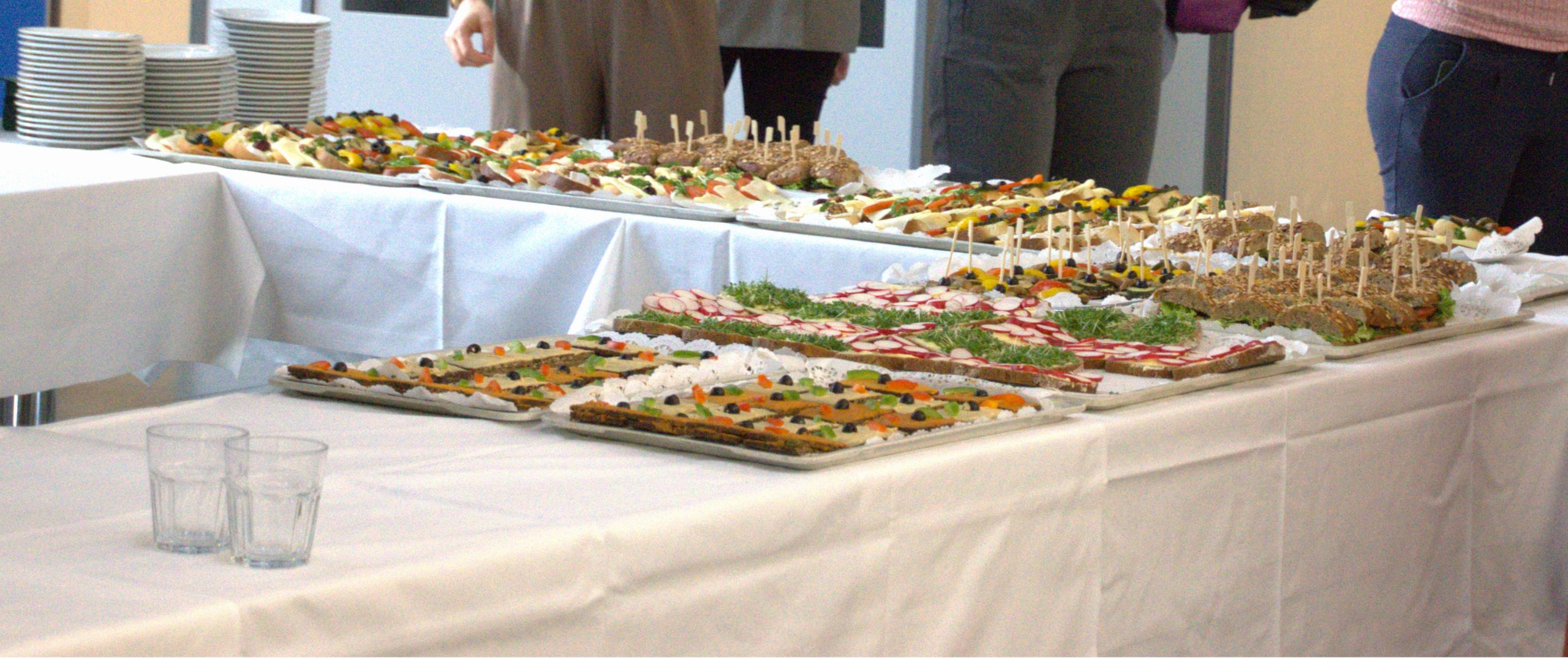
Alcoholism – a social issue: Taking responsibility Engagement days – Caritas Aloisianum
The next day, a small group from FH CAMPUS 02 visited the Caritas Aloisianum, a long-term care facility for people struggling with alcoholism. In this welcoming residential group, those affected find a safe place to work through their issues with dedicated therapists and carers, receive information about their condition, and practise alternative behaviours. Staff from FH CAMPUS 02 gave residents a free morning from kitchen duties and cooked for everyone. During this time, they discussed the topic and its seriousness in society with both staff and residents. Alcohol—whose regular consumption is neither harmless for health nor economically— is everywhere. Offering an equally valid alcohol-free alternative, especially at celebrations and ideally as the first option, would make the issue easier for many people to address and actively counter.
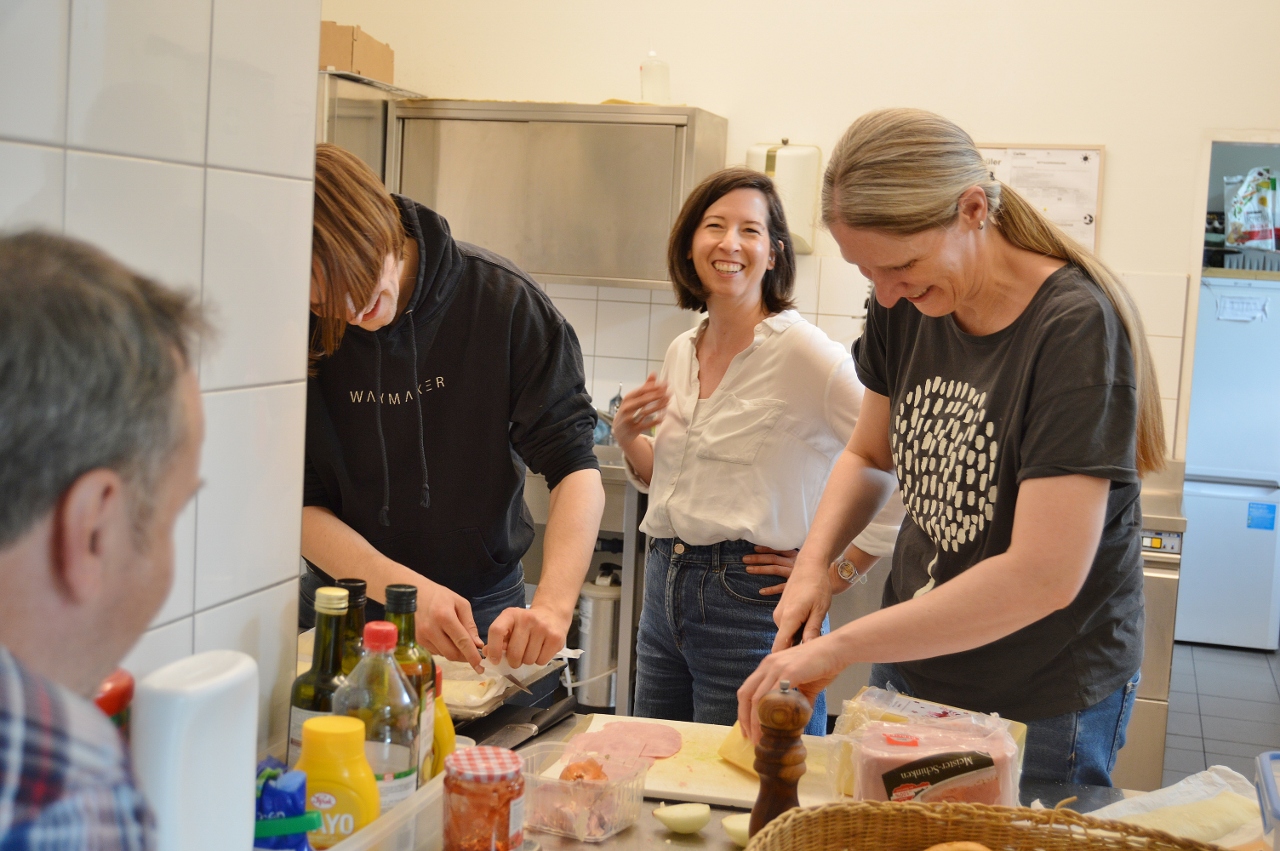
Within the Verantwortung Zeigen network, FH CAMPUS 02 connects with other social organisations and companies. At the kick-off event for the Engagement Days, participants involved in social activities across Styria had the opportunity to exchange ideas.
Repair rather than throw away
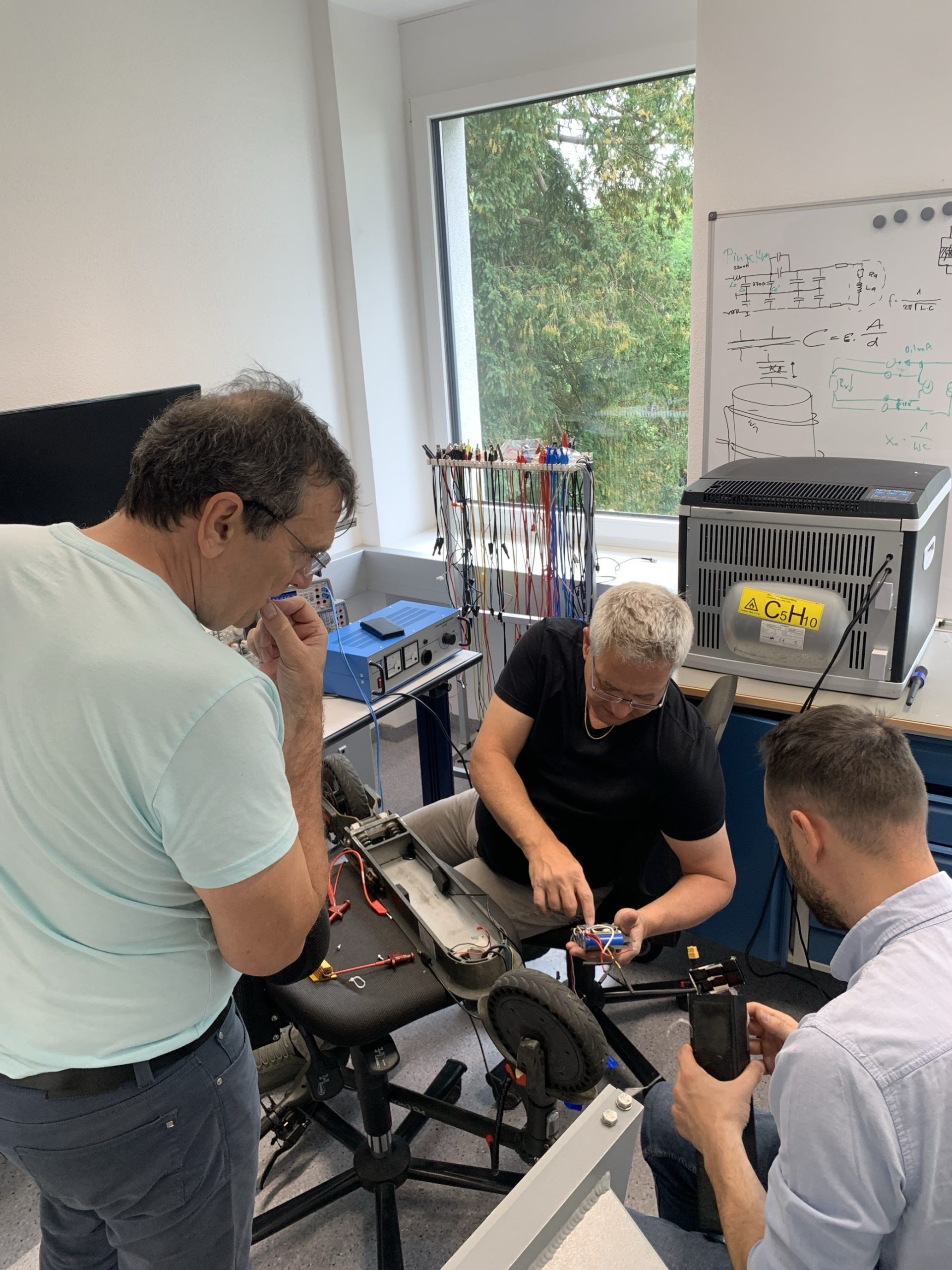
Another major event of the Green Days was the AT Repair Day. Here, members of FH CAMPUS 02 brought faulty devices to the laboratories of the Department of Automation Technology and worked together with staff from Automation Technology to repair them. What stood out was that despite EU regulations, inexpensive devices are still very difficult to repair. Where possible, it is recommended to prioritise quality when making the initial purchase. High-quality devices are often easier to repair because repairability is considered during their design.
Clothing – Reuse and Pass On
“Since I took part in the clothing swap with you last year, I’ve considered wearing second-hand clothes and have been buying from charity shops ever since.” – Lecturer at FH CAMPUS 02
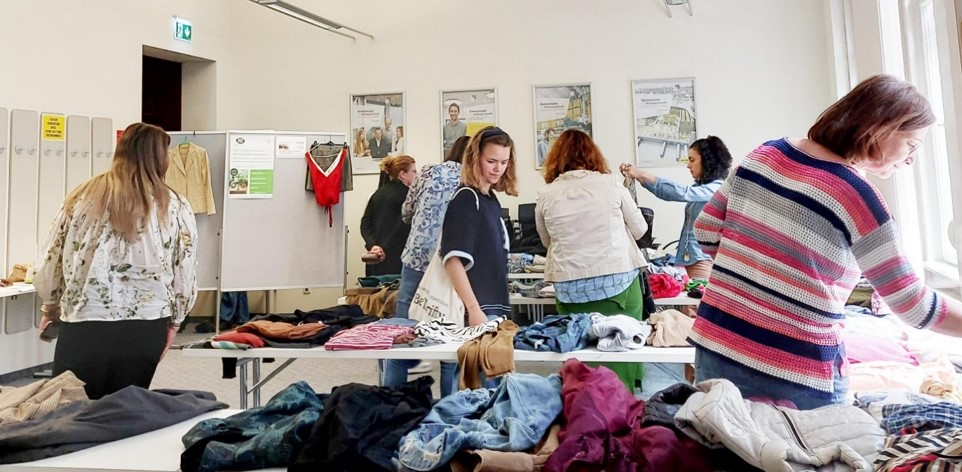
Together with the student organisation oikos Graz, we organised a clothing swap for the second time, where around 100 participants from FH CAMPUS 02, as well as students from other universities and members of the public, made their way to CZ 138 on campus. Alongside delicious homemade treats, many garments were brought and taken home.
Next year, the Green Days will once again take place at FH CAMPUS 02 in the week leading up to Ascension Day. We look forward to welcoming you to experience new sustainable ways of acting with us at FH CAMPUS 02!
Event outlook
On 24 June, the Sustainability Day 2025 hosted by the WKO Styria will take place, featuring a mix of keynotes, workshops, and exhibitions offering plenty of information and tips for everyday business operations: Register here.

